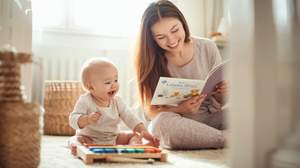As temperatures rise across much of the world, parents often wonder whether it’s safe to use air conditioning (AC) around newborns and infants. The short answer is: yes, air conditioning can be safe for babies—if used correctly and with proper precautions. In fact, in many regions, AC is not only safe but essential for infant comfort and health, especially during heat waves or high humidity.
Why Air Conditioning Can Be Beneficial for Infants
1. Prevents Overheating
Babies, especially newborns, are not as efficient at regulating their body temperature. Overheating can lead to dehydration, poor sleep, heat rashes, and in severe cases, even heatstroke. AC helps maintain a safe, consistent temperature.
2. Improves Sleep Quality
An optimal temperature—typically between 23°C to 26°C (73°F to 79°F)—helps babies sleep more soundly. Sleep disruptions due to heat can affect feeding, mood, and development.
3. Reduces Risk of SIDS
According to several pediatric studies, overheating is a contributing factor to Sudden Infant Death Syndrome (SIDS). Maintaining a cool, ventilated room can help reduce this risk.
Risks of Improper AC Use for Infants
While AC is helpful, improper usage can cause issues. Below are potential risks and how to prevent them:
| Risk | Impact on Infant | How to Prevent |
| Overcooling | Hypothermia, disrupted sleep | Maintain room temp between 23°C–26°C |
| Direct Airflow | Nasal congestion, dry skin, colds | Never let cool air blow directly on the baby |
| Dry Air | Dry skin, irritated eyes, nasal blockage | Use a humidifier or keep a bowl of water in the room |
| Unclean Filters | Dust, mold, allergens circulating through the air | Clean AC filters every 2–4 weeks |
| Sudden Temperature Changes | Immune stress, cold symptoms | Turn off the AC before stepping out with the baby |
Safe AC Usage Guidelines for Parents
1. Set an Appropriate Temperature
Maintain the room temperature between 23°C to 26°C. Avoid setting the AC too cold. Check the baby’s chest or back—not hands or feet—for warmth.
2. Avoid Direct Exposure
Position the crib away from vents or drafty areas. Use deflectors if necessary. Babies should not sleep in the path of direct airflow.
3. Use Appropriate Clothing
Dress your baby in light, breathable, full-length cotton clothes. Add socks or a light cap if needed. Avoid overdressing.
4. Maintain Humidity
AC tends to dry out the air. Use a humidifier, or place a bowl of water in the room to maintain indoor humidity between 40–60%.
5. Monitor Baby’s Comfort
Signs of discomfort include shivering, cold skin, restlessness, or a blocked nose. Adjust the temperature or humidity accordingly.
6. Limit Exposure to Sudden Changes
Before taking the baby out of an air-conditioned room, turn off the AC 10–15 minutes in advance to allow the baby to gradually adjust to the ambient temperature.
7. Keep AC Clean
Ensure the air conditioning unit is serviced regularly. Dirty filters can harbor bacteria, dust mites, and mold—all of which can irritate an infant’s developing respiratory system.
Expert Recommendations
- Indian Academy of Pediatrics (IAP) and American Academy of Pediatrics (AAP) both affirm that air conditioning can be used for infants when safety guidelines are followed.
- Pediatricians emphasize that the goal is to maintain comfort, not excessive cooling.
What Pediatricians Advise
- Dr. Shalini Batra (Pediatrician, Delhi): “It’s a myth that AC makes babies sick. Illness usually results from poor hygiene or viruses, not from cool air. Babies need a comfortable environment.”
- Dr. Rahul Sharma (Neonatologist, Mumbai): “Using air conditioning is fine as long as it's not directly blowing on the baby and the temperature is stable. Dryness is manageable with proper hydration and skin care.”
Summary Checklist for Parents
- Maintain room temperature at 23–26°C
- Avoid direct airflow on the baby
- Use light cotton clothing
- Ensure proper humidity
- Clean the AC filter regularly
- Turn off AC before taking the baby outside
- Monitor baby’s comfort, not just the room thermometer
Final Verdict
Yes, air conditioning is safe for infants when used with care. It can help regulate your baby’s body temperature, promote better sleep, and reduce the risk of overheating-related complications. The key lies in balanced temperature, clean air, indirect airflow, and consistent monitoring of your baby's comfort.
If used wisely, AC is not a luxury—it’s a tool for safe, healthy infant care, especially in warm climates.





Be the first one to comment on this story.